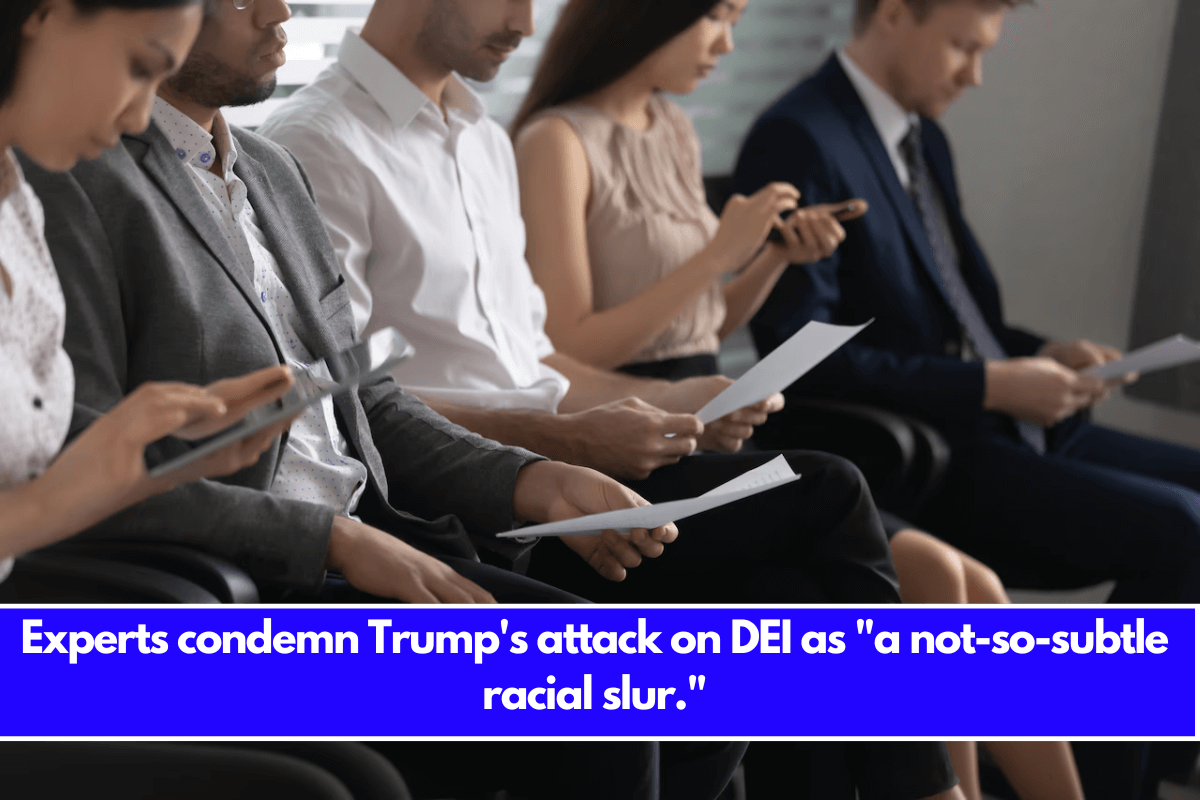The growing federal pressure to end diversity, equity, and inclusion (DEI) initiatives raises more questions than answers about the future of anti-discrimination programs in New Jersey and across the country.
Last week, the Department of Justice indicated that it could criminally investigate companies that engaged in what it called “illegal” race- and gender-based discrimination under the “guise” of DEI.
Legal and workforce experts believe it could have a “chilling” effect on programs aimed at combating prejudice and promoting equitable working conditions. It is also unclear which criminal laws the Trump administration is citing, according to these experts.
“I think that, yes, that is an effort to utilize the kind of mechanism of civil rights law, not in favor of the groups that have been historically served by those laws because they were the impetus for those laws, but instead to say, ‘We believe society has gone too far in the direction of protecting the interest of those groups,'” said Stacy Hawkins, a professor of law at Rut
Workers are protected by Title VII of the Civil Rights Act of 1964, which prohibits workplace discrimination based on gender, race, color, religion, and national origin. However, Title VII is a civil law and not a criminal one.
On Trump’s orders
On Jan. 21, President Trump issued an executive order alleging that some institutions use DEI to engage in “dangerous, demeaning, and immoral race- and sex-based preferences” that “undermine the traditional American values of hard work, excellence, and individual achievement.” Trump’s order alleges that some institutions are engaging in illegal DEI practices that violate federal civil rights law.
The executive order requires the U.S. attorney general to submit a report outlining recommendations for enforcing federal civil rights law against “illegal discrimination and preferences, including DEI.”
The report will identify potential investigation targets, such as publicly traded companies, major nonprofits, state and local bar and medical associations, and higher education institutions with endowments of more than $1 billion.
A memo from the Department of Justice stated that it intends to “investigate, eliminate, and penalize illegal DEI and DEIA [diversity, equity, inclusion, and accessibility] preferences, mandates, policies, programs, and activities” and included proposals for criminal investigations, but it did not specify which criminal laws could be violated.
The Justice Department did not respond to a NJ Spotlight News request for more information, and White House officials did not specify which laws are the basis of the executive order.
Immediate effects
The consequences of Trump’s anti-DEI policies are ongoing. Large corporations such as Google, Target, and McDonald’s have abandoned hiring goals designed to increase diversity in their workforce.
Other companies, including Costco, JPMorgan Chase, and Pinterest, have publicly recommitted to their DEI efforts.
“It’s not one consistent theme,” said Dee C. Marshall, CEO of Diverse & Engaged, a New Jersey-based workforce solutions firm.
As of Wednesday, large companies in New Jersey, including Johnson & Johnson, Merck, and PSEG, still had public web pages about their diversity and equity initiatives. On January 23, the Princeton-based Robert Wood Johnson Foundation released a statement condemning Trump’s policies.
“It is unconscionable that the Trump administration would use the language and vision of the civil rights movement in these executive orders as it attempts to return our country to an era of widespread, state-sanctioned discrimination.
Finally, these measures push us further away from a future in which health is no longer a privilege, but a right for all,” said Dr. Richard Besser, president and CEO of the Robert Wood Johnson Foundation. (The Robert Wood Johnson Foundation funds NJ Spotlight News.)
Widespread confusion
It’s unclear how the Justice Department will implement Trump’s policy. While the executive order’s stated goal is to identify companies that engage in DEI practices that discriminate based on race and gender, the definition of DEI in the order is “very vague,” according to Rutgers Law School dean emeritus David Lopez.
Lopez, former general counsel to the US Equal Employment Opportunity Commission, believes DEI has become a racial slur or dog whistle. “In my view, it’s usually been directed at African Americans, African American women and, I think to [a] lesser extent, women and Latinos.”
Legal and workplace experts argue that critics of DEI misunderstand the concept. The term “DEI” refers to a voluntary framework that encourages representative, equitable, and inclusive organizations. Marshall explained that DEI does not necessarily refer to a single program or initiative.
“Diversity, equity, and inclusion are not programs or initiatives… We’re discussing basic human rights. And diversity entails representation of all individuals. It is a representation of
Will courts decide?
One of the goals of the DEI framework is to ensure that companies hire from a diverse pool of talent. That could include recruiting from various colleges or affinity groups, but it does not imply selecting a candidate solely based on how they identify, according to DEI experts.
Critics have accused the DEI framework of discriminating against white people and men, but Marshall maintains that DEI is not a zero-sum game; “when you give other people some, then [others] get nothing.”
Hawkins of Rutgers Law School stated that the Trump administration “does not get to determine what is permissible and impermissible.” They enforce the law but do not interpret it.
“It’s also clear that this executive order will result in enforcement action by the Trump administration. However, it does not imply that companies doing DEI will be liable because the Trump administration does not have the authority to decide that; the courts will,” Hawkins said.
